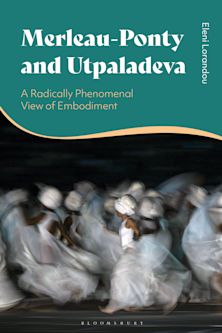- Home
- ACADEMIC
- Philosophy
- Phenomenology
- Imagining with Purpose in Childhood
Imagining with Purpose in Childhood
Children as Emerging Agents Envisioning Lives Worth Valuing
Imagining with Purpose in Childhood
Children as Emerging Agents Envisioning Lives Worth Valuing
You must sign in to add this item to your wishlist. Please sign in or create an account
Description
Imagining with Purpose in Childhood explores the question: How might moral imagining be conceived to support the cultivation of responsible autonomy in childhood? It argues that when conceived as a conscious, flexible process, moral imagining may contribute to children's emerging agency by expanding and enriching their envisioned options for what they believe is worth valuing within their current and future circumstances, thereby helping to make their autonomy more responsible. Natalie M. Fletcher proposes the conception of deliberate moral imagining, understood as the purposeful envisioning of a given context from multiple frames of reference in response to a real-world encounter, with the goal of bringing to light possibilities for what seems reasonable to value in order to broaden the moral lens through which lived experiences are approached and assessed. This book explores how deliberate moral imagining may assist children in confronting some important challenges to responsible autonomy that risk constricting their envisioning of the overarching contexts most influential in childhood: their relation to others (how they view and treat them), their relation to self (how they perceive and value themselves) and their relation to knowledge (how they learn and what they claim to know about the world). In response to the respective challenges of narrow empathetic scope, conversion inhibition and inaccurate pseudoenvironments, deliberate moral imagining may help enrich children's “mental landscape” by cultivating relational openness through three crucial autonomy supports: empathic engagement, self-efficacy and reasonableness. The book draws on three theoretical frameworks-neo-Aristotelian virtue theory, the Capabilities Approach and classical pragmatism-and includes a case study of the Philosophy for Children program as an illustrative example of deliberate moral imagining in action.
Table of Contents
Acknowledgements
Introduction
Chapter 1: Conceptualising Moral Imagining
Chapter 2: Moral Imagining Within Neo-Aristotelian Virtue Theory
Chapter 3: Moral Imagining Within the Capabilities Approach
Chapter 4: Moral Imagining Within Classical Pragmatism
Chapter 5: Morally Imaginative Practices in Childhood
Conclusion
References
Index
Product details

| Published | 09 Jul 2026 |
|---|---|
| Format | Ebook (Epub & Mobi) |
| Edition | 1st |
| Extent | 256 |
| ISBN | 9781978769922 |
| Imprint | Bloomsbury Academic |
| Series | Philosophy of Childhood |
| Publisher | Bloomsbury Publishing |
About the contributors
Reviews
-
Natalie M. Fletcher has delivered a conceptual blockbuster, argued with rigorous cogency, which lays the theoretical groundwork for an emergent philosophy of childhood and a corresponding philosophy of dialogical education. She traces-through the canons of moral philosophy from Aristotle to Dewey and beyond-the normative concepts of responsible autonomy, emergent agency, empathic engagement, and epistemic flexibility as they figure in children's developmental processes as moral agents. Most valuably, she applies her thorough theoretical exploration of what she calls 'imaginative practice' to the concrete project of organizing communities of philosophical inquiry for children, a project that represents an evolutionary advance in the principles and practice of moral education.
David Kennedy, Montclair State University, USA
-
Fletcher's adventurous philosophical practice with children and adolescents is utterly inspiring, and this book offers us a written expression of this work in the form of a thoughtful manifesto for the vibrancy of childhood/s. Fletcher's attention on the role of moral imagination and particular qualities of empathic engagement, self-efficacy, and epistemic flexibility is an insightful, stirring and timely contribution to the re-imagination of childhood/s and the growing movement for childism.
Joanna Haynes, University of Plymouth, England.



































